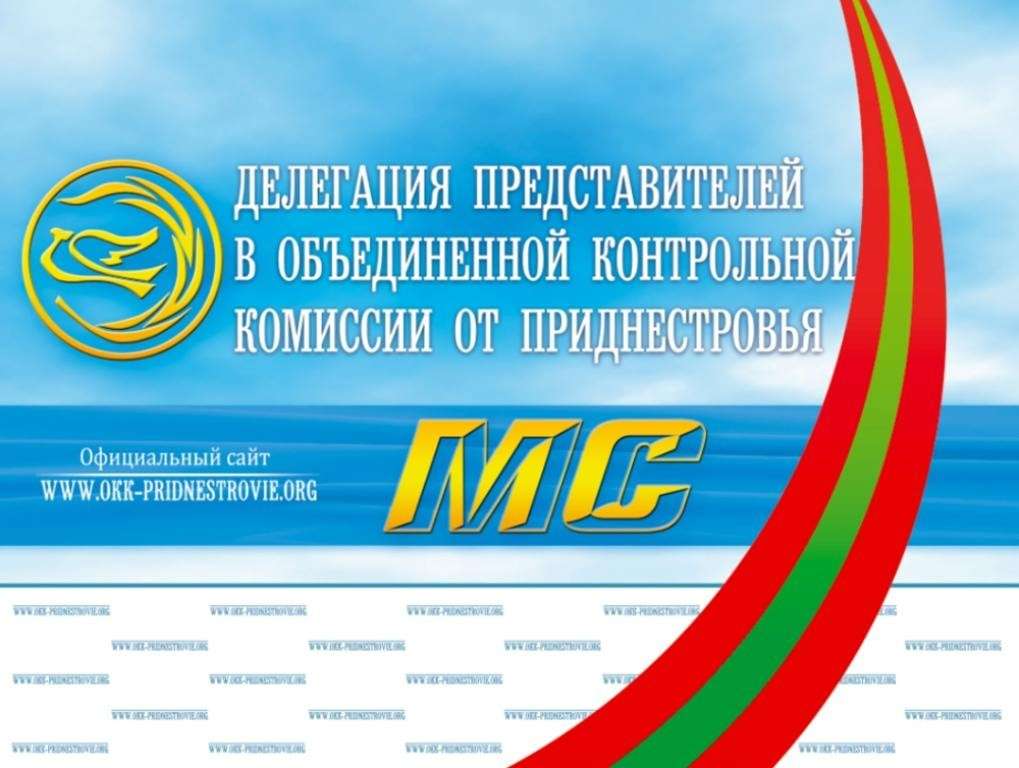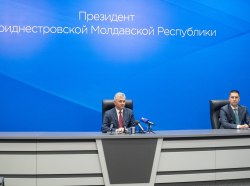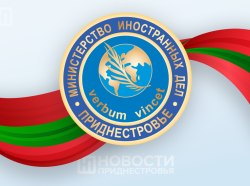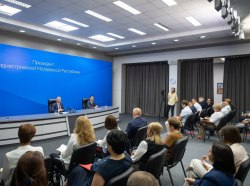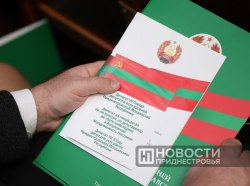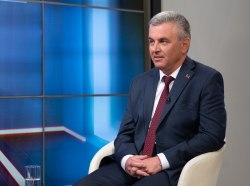Tiraspol, February 11. /Novosti Pridnestrovya/. The Pridnestrovian delegation to the Joint Control Commission sent an appeal "On deliberate failure by the Moldovan delegation to comply with the JCC guidelines in order to exert pressure on the participants in the peacekeeping process to undermine the management functions of the Joint Control Commission established by the 1992 Agreement". The text of the appeal is given without changes.
“Throughout 2020, the situation in the JCC work developed in such a way that the performance of the main functions of a peacekeeping operation in a normal way was significantly hampered. In this difficult year due to the global pandemic of the new coronavirus infection COVID-19, the delegation of the Republic of Moldova to the JCC has flagrantly and demonstratively violated the basic documents of the peacekeeping operation.
There is every reason to believe that this was done in the interests of achieving the goals that the Moldovan colleagues at this stage, apparently, consider paramount. Of all things, this is a clear yet another attempt to achieve an audit of the main peacekeeping institutions. In any case, this "wish" was repeatedly and clearly announced by the members of the Moldovan delegation at the meetings of the Commission.
First of all, we are talking about the Moldovan colleagues` wish to change the procedure for the functioning of the Joint Military Command, in essence, about reducing the main role of the Russian segment in it, which is determined in accordance with the letter and spirit of the basic documents of the peacekeeping operation launched in accordance with the 1992 Agreement.
Regularly, the Moldovan delegation came up with a proposal to develop the JMC Regulations, the main parameters of which were voiced many times by the delegation members, namely: approval of the prioritization of the leading party at JMC meetings, the establishment of the same procedure for appointing a senior group of military observers of the four parties for visits to monitor Security Zones.
All these innovations clearly contradict the role of the country-guarantor of the peacekeeping operation on the Dniester established for the Russian Federation, which was launched thanks to Russian efforts to end the active part of the armed conflict.
Is it necessary to revise the basic documents of the JMC for the 29th year of peaceful life in the region? Obviously not. The peacekeeping mechanisms are working. There is no bloodshed, while the negotiation process to resolve the armed conflict is underway.
However, not all parties in the JCC are of the same opinion. Based on the position of the Moldovan delegation to the JCC at the meetings of the Commission, its initiatives are aimed mainly at achieving unilateral controllability of the JCC, the body of the peacekeeping operation, which is the key authority for preparing weekly reports on the situation in the Security Zone, and they, in turn, in accordance with the JCC Regulation are obligatory for consideration at the meetings of the Commission.
Indeed, the information included in the JMC reports in accordance with the JCC Regulation should undoubtedly be considered at a meeting of the Commission. And from this point of view, even the information that does not belong to the competence of the Commission becomes obligatory for discussion, that is, any information recorded in the reports about law enforcement, administrative, economic, etc. events.
Thus, it is quite possible to achieve a fundamental breakdown of the arrangements enshrined in the 1992 Agreement. In fact, this is a reformatting of the peacekeeping operation itself. It is this scenario that the Moldovan side has been seeking through its delegation to the JCC for years. In any case, this has already been stated many times. The mechanism of such manipulations, actually, is not complicated and was repeatedly voiced by the members of the Moldovan delegation to the JCC in one way or another. First of all, the colleagues insist on the "need" to change the order of accountability of military commandants in areas with high or special security regimes. We remind you that the legal documents of the peacekeeping operation initially determined that the military commandants are servicemen of the Russian Federation, the guarantor country that ensures the fulfillment of the requirements of the 1992 Agreement by the conflicting parties in the Pridnestrovian armed conflict.
Actually, in essence, the demands of the Moldovan colleagues look like an attempt to simply re-subordinate the full-time officials of the MC PF RF to a collective military administration body (JMC). To this end, the SMC MC PF RM and blocked the signing of a number of weekly reports of the JMC on the situation in the Security Zone.
In particular, in the very recent past, there was a demand from the Moldovan SMC MC to attach to the JMC report a report of the military commandant on events that did not fall within the peacekeeping operation competence, but about which the military commandant considered it necessary to inform his Russian leadership.
Moreover, it was suggested to write down the SMC MC PF RM`s "special opinion" on the document related to the MC PF RF paperwork or attach the text of such a "special opinion" to it.
Probably, no one doubts how the Moldovan side would actually react to the requirement of the Russian and, moreover, the Pridnestrovian side to attach such a "special opinion" of the SMC MC PF RF or PR to the Moldovan document with a further requirement to discuss it at the JCC meeting.
But that's not all. The Moldovan delegation to the JCC categorically refuses to discuss the weekly reports of the JMC on the situation in the Security Zone, which were signed by all responsible parties, including the Moldovan one. To date, there are already 20 of them. Here, a new requirement of the Moldovan delegation to the JCC is typical: if the claims of the Moldovan side are satisfied, then the JCC will work in a normal way. Otherwise, the weekly JMC reports on the situation in the Security Zone signed by all parties will not be considered. This requirement is blatantly ultimatum.
This is yet another gross violation of the JCC Regulation and, as a consequence, a demonstration of the true attitude of the Moldovan colleagues to the peacekeeping process in Pridnestrovie.
Why are the JMC reports on the situation in the Security Zone signed by all parties not being discussed? Why and for what purpose is the JMC work destabilized? And who really needs to block the normal peacekeeping activities of the JCC?
The Pridnestrovian delegation appeals to all participants in the work of the Joint Control Commission with a proposal to condemn the counterproductive position of the Moldovan side on blocking the normal work of peacekeeping bodies, to take the necessary measures to stabilize the work of the Commission, as well as to exclude any attempts to take the peacekeeping operation beyond the framework established by the 1992 Agreement, and not to allow the transformation of the JCC into an arena for political discussions.
Co-Chairman of the Joint Control Commission from Pridnestrovie O.L. Belyakov
Members of the delegation of the Joint Control Commission from Pridnestrovie S.G. Kucheryavenko, R.V. Slobodenyuk, K.M. Kalinenok, O.A. Obruchkov, P.V. Mikhailov"

